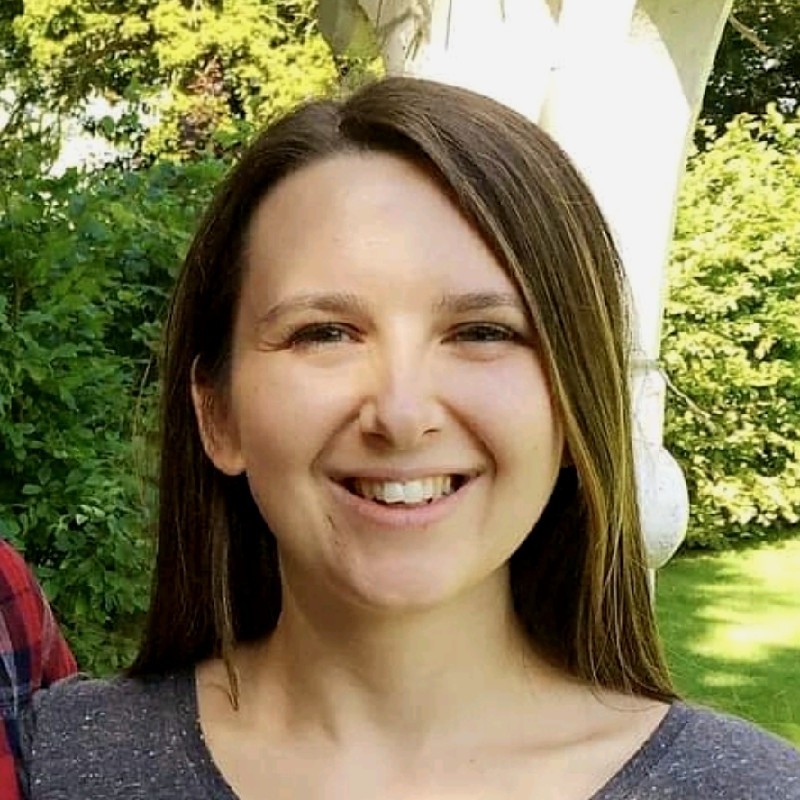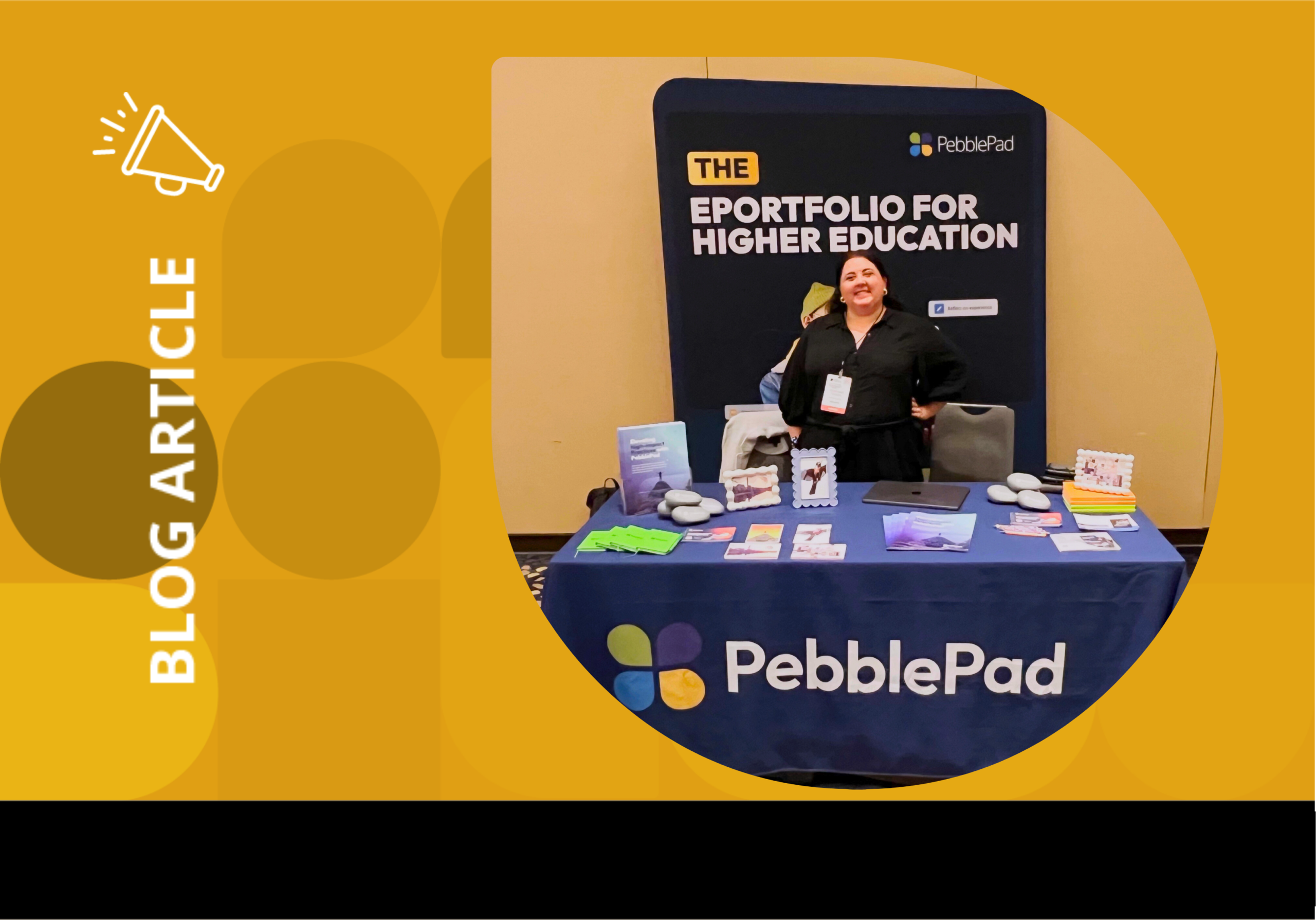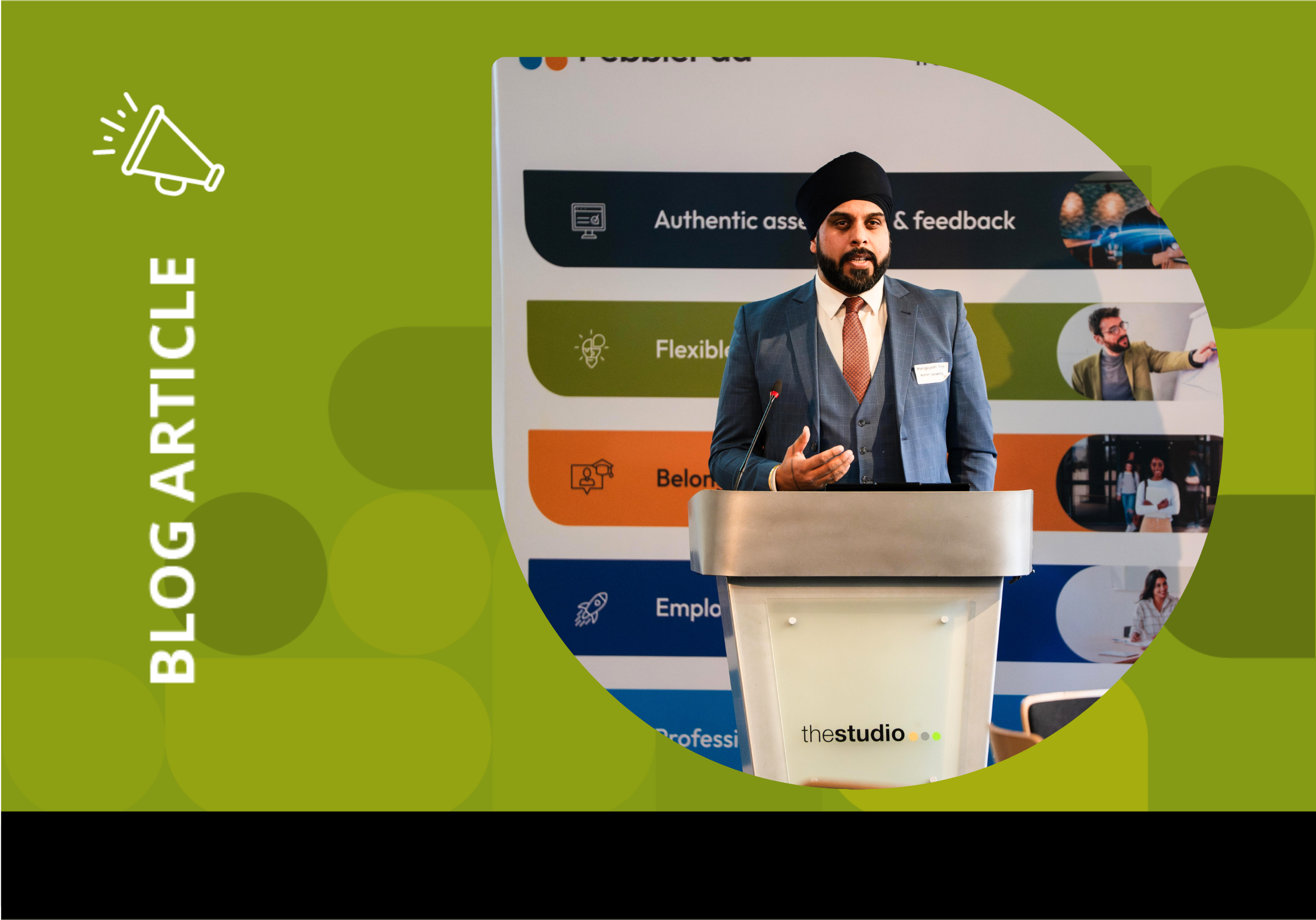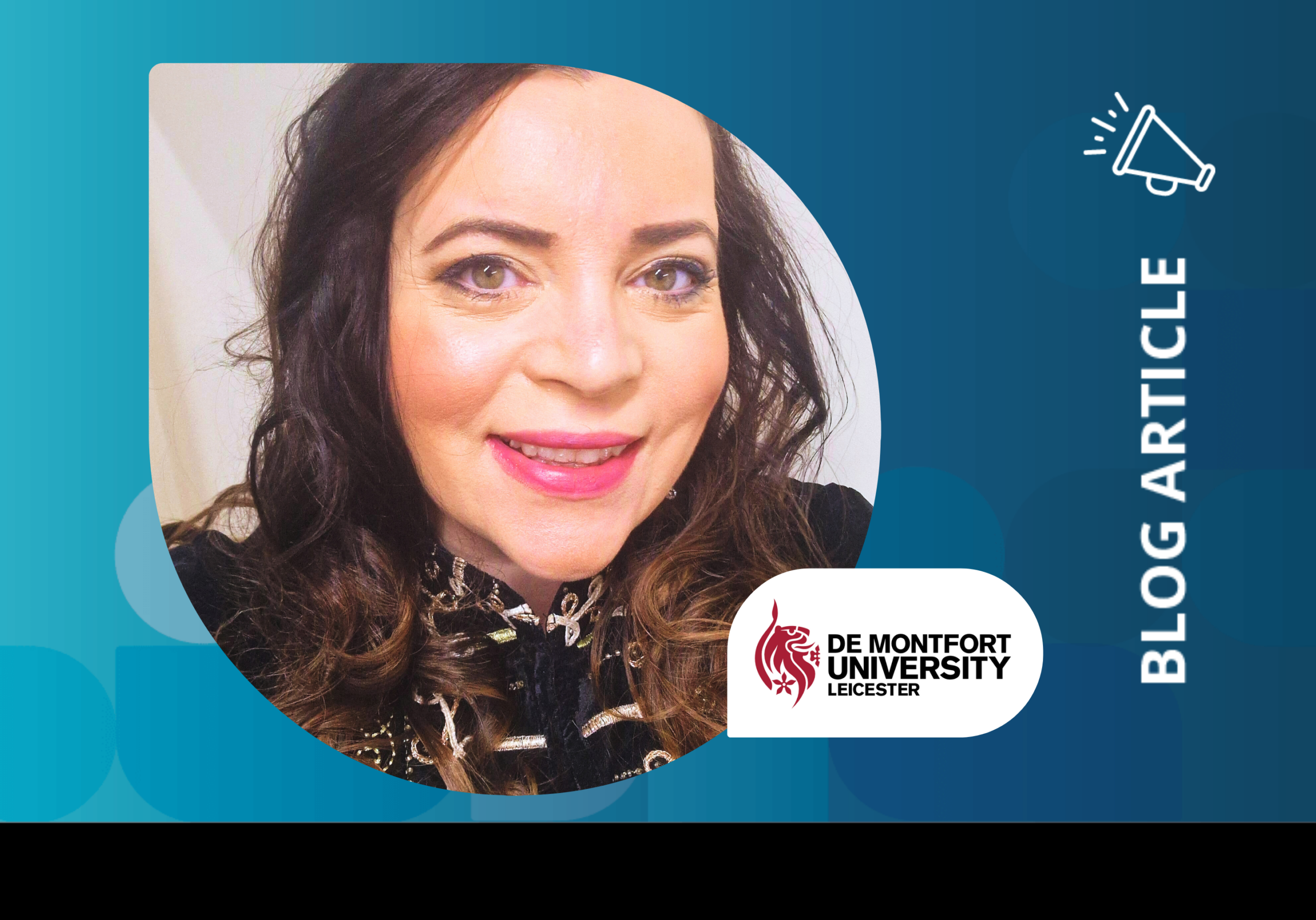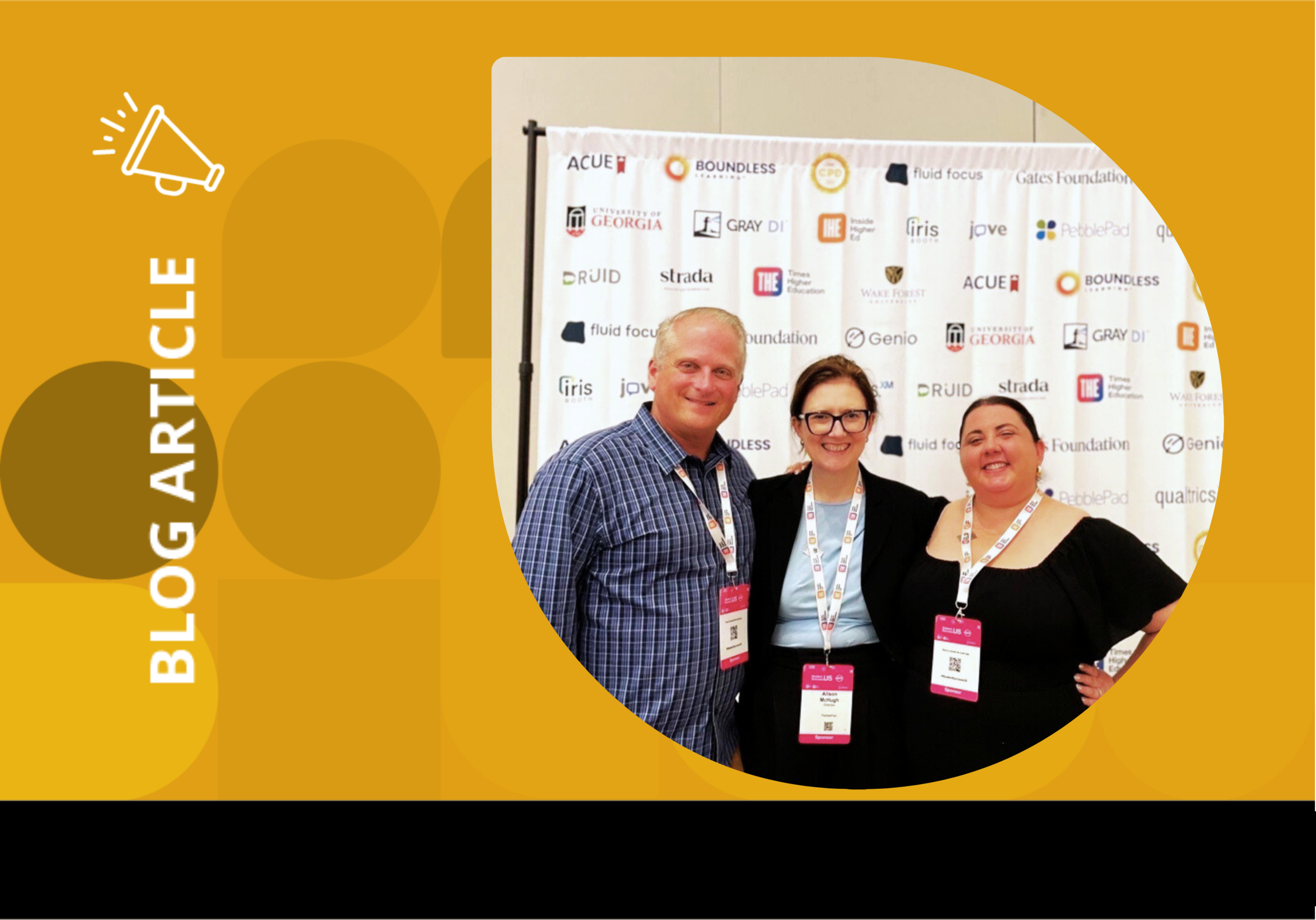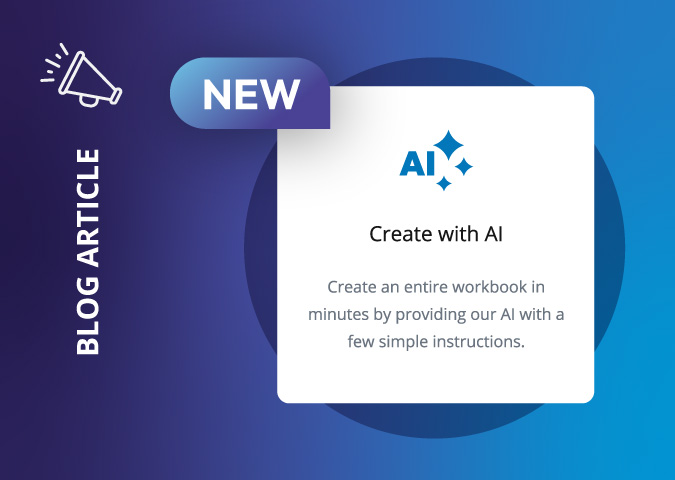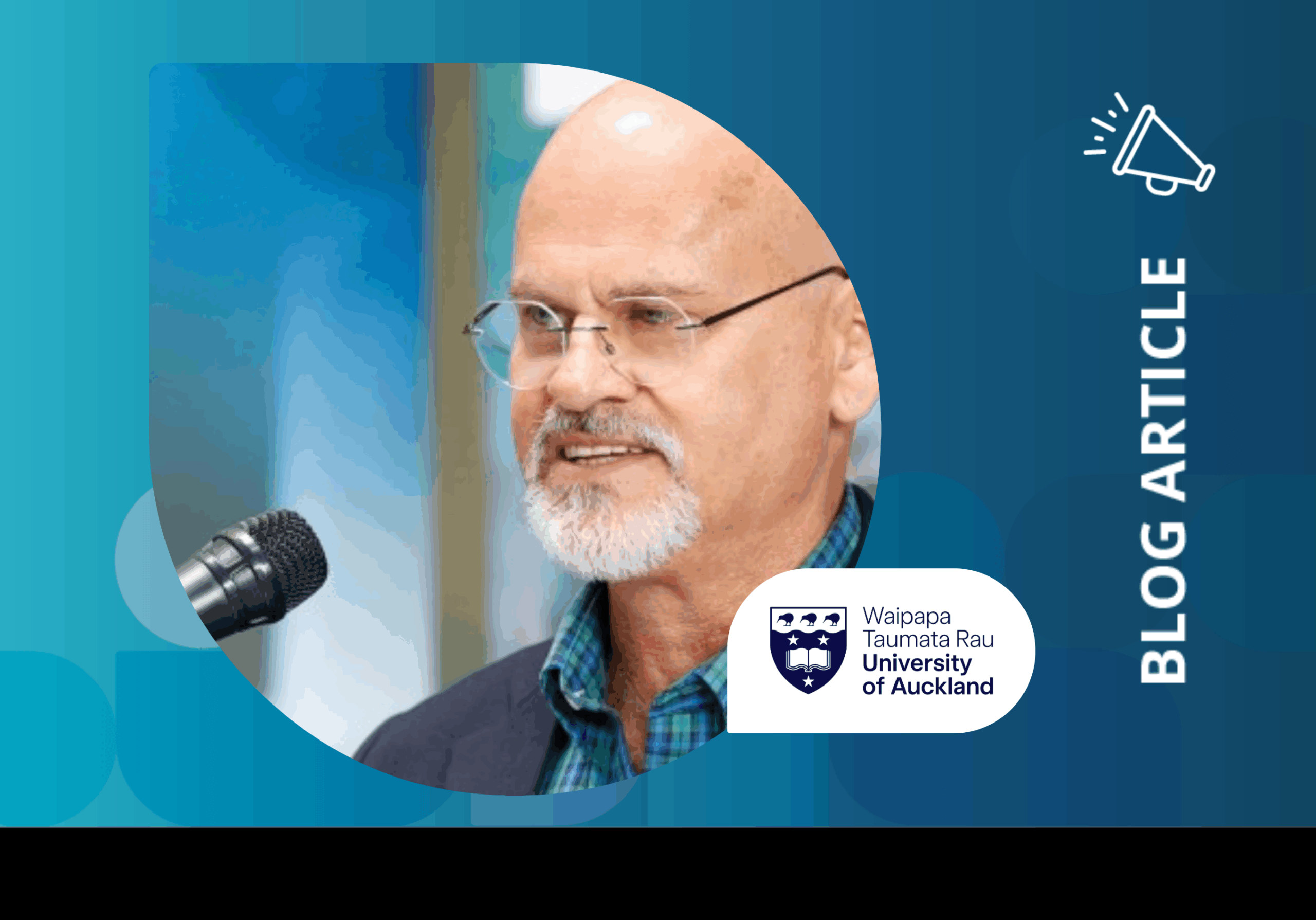Hosted by Durham University, the 23rd Durham Blackboard Users conference focused on the theme ‘Personalising Learning: Transformation or Twaddle?’, exploring whether the concept of tailoring education to individuals was genuinely achievable.
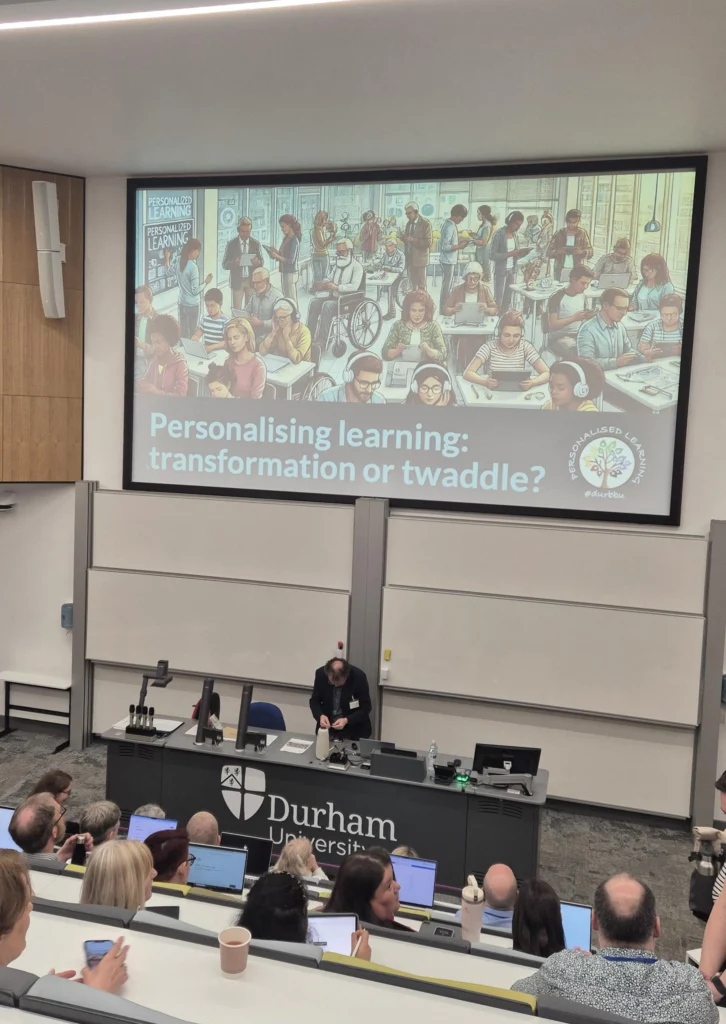
Pre-conference workshops kicked off the event with PebblePad delivering its own session, ‘Empowering Personal Learning: Creativity, Careers and the Role of Technology in Higher Ed’. Joined by James Littlehales (Head of Customer Success Management EMEA), we discussed and shared experiences of using PebblePad for graduate attributes and the opportunities to utilise ePortfolios post-graduation with a PebblePad Alumni account. We also explored the integration functionality between PebblePad and Anthology.
Opening the conference itself, the keynote speech from Malcolm Murray (Head of Digital Learning, Durham University) offered a thought-provoking discussion around personalised and student centred learning. Malcolm delved into its history with some wonderful nods to behaviour theory (ticking my personalised learning box!) and encouraged the audience to consider the pros and cons of allowing choice; for example, in assessment design, choice can lead to higher engagement and motivation – but at the potential cost of social learning.
Rewarding insights
The next two days were filled with workshops, talks and presentations attended on behalf of PebblePad by myself and Claire Weir. These events were delivered by individuals and teams from across a range of academic disciplines and institutions. It was rewarding to hear about their personal experiences within Higher and Further Education including the successes, failures and learnings of implementing personalised and student centred learning in the classroom – all this while juggling advances in technology and AI, just two of the many day-to-day challenges faced by the industry.
Every session I attended was brilliant but some standout moments included a talk by Julie Usher and Jen Gutridge (Durham University) who presented an overview of digital assessment in their session, ‘Lost in the Maze: Navigating Personalisation and Specialisation in Digital Assessment’. I also must give a shoutout to Sarah Dodds (Durham University) whose session ‘All Aboard the Crazy Train: How I Succeeded (but Mostly Failed) to Implement Personalised Learning’ was truly inspirational and relatable. Aside from the fantastic title, Sarah delivered an honest account of the complexities of a career in teaching and education while highlighting just how rewarding it can be.
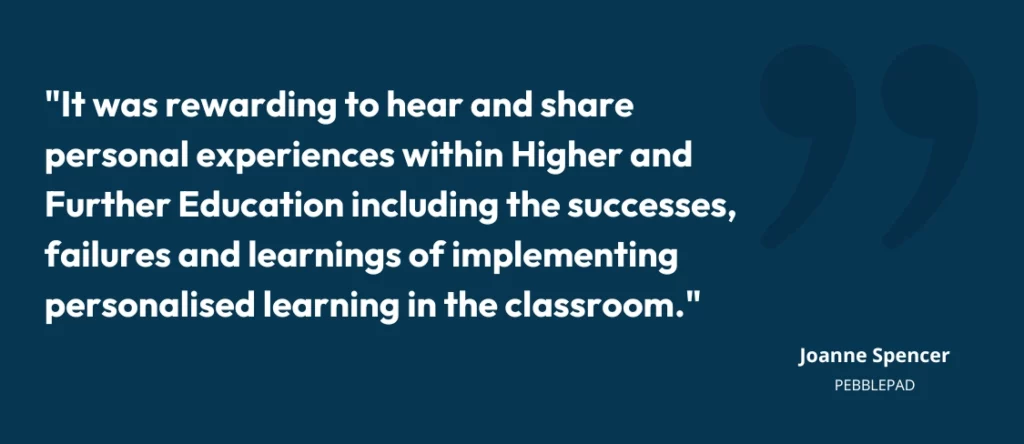
Authentic assessment
It was great to meet and speak to educators and technologists (both new and those already using PebblePad as assessment software in higher education) about the feasibility and implications of personalised learning. This also included discussing broader topics such as adaptive learning technologies, the role of generative AI and the integration of evidence-based pedagogical practice.
It was also heartening to see many examples of how PebblePad could be used to support assessment in higher education and personalised learning. For example, to help learners plan for, record and reflect on learning experiences, and collect, curate, share and showcase evidence of their evolving capabilities.
What was evident by the end of the conference – after a fantastic evening spent at Durham Castle – was that the conversation on personalised learning is far from over in the ever-changing world of technological advances, educational developments and assessments in education. And with such dedicated people and teams working within the education industry, the conference showcased how tailoring education to individuals remains a vital – and achievable – part of the learning journey’s evolution.

